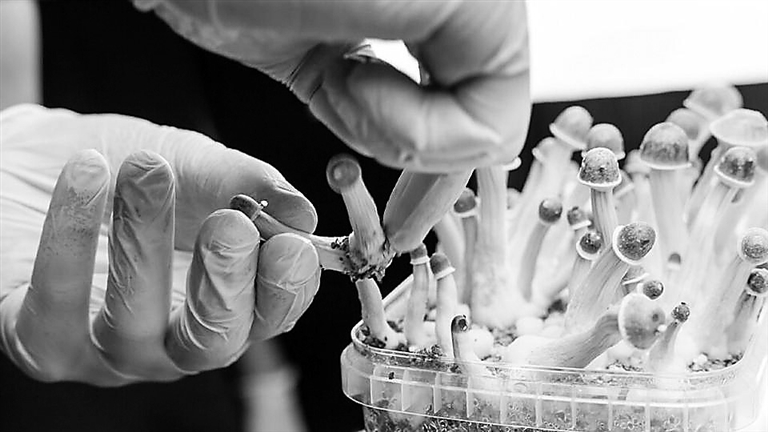
PSYCHEDELICS are known for their hallucinogenic properties, but their mind-altering effects may also benefit people with depression. Currently, the gold standard for treating major depressive disorder (MDD) is psychotherapy or antidepressant medication. A 2014 study in World Psychiatry found that psychotherapy combined with antidepressants was more effective than the former alone. New antidepressants are ketamine-like drugs that show a high therapeutic response. While currently approved by the U.S. Food and Drug Administration (FDA), there are some short-term side effects to consider when using ketamine, such as feeling strange or bizarre, numbness, and difficulties speaking. Ketamine also has a high liability for addiction and may have a large potential for abuse. To avoid people abusing their medication, alternative treatments to support psychotherapy are needed — enter psilocybin. There is growing evidence of psilocybin’s antidepressant properties. A study in the Journal of Psychopharmacology demonstrateda single psilocybin dose that produced an antidepressant and anxiolytic response in cancer patients, which lasted for 5 years. Compared with ketamine, psilocybin has lower addictive properties, which would be beneficial as a potential add-on for current treatments. However, clinical research evaluating this substance in combination therapies is limited. Recently, researchers at Johns Hopkins University published an article contributing to the research investigating the effectiveness of psilocybin-assisted therapy for depression. Their clinical trial results appear in JAMA Psychiatry. From August 2017 to April 2019, the researchers of the current study recruited adults with MDD who were not taking antidepressant medications and had no history of psychotic disorder, suicide attempts, or hospitalizations. The scientists randomly assigned a total of 24 participants to an immediate or a delayed treatment group. The psychedelic-assisted therapy lasted for 8 weeks, with 18 in-person visits and 2 days for psilocybin treatment. Participants in the immediate treatment group began the psilocybin treatment during an 11-hour supportive psychotherapy session. The researchers allowed for a 1.6-week break between the first and second doses. In contrast, the delayed treatment group waited 8 weeks before receiving psilocybin-assisted therapy. In the entire cohort, 67 percent reduced the severity of their depressive symptoms 1 week after psilocybin treatment. This percentage grew to 71 percent when researchers followed up after 4 weeks. (SD-Agencies) | 
